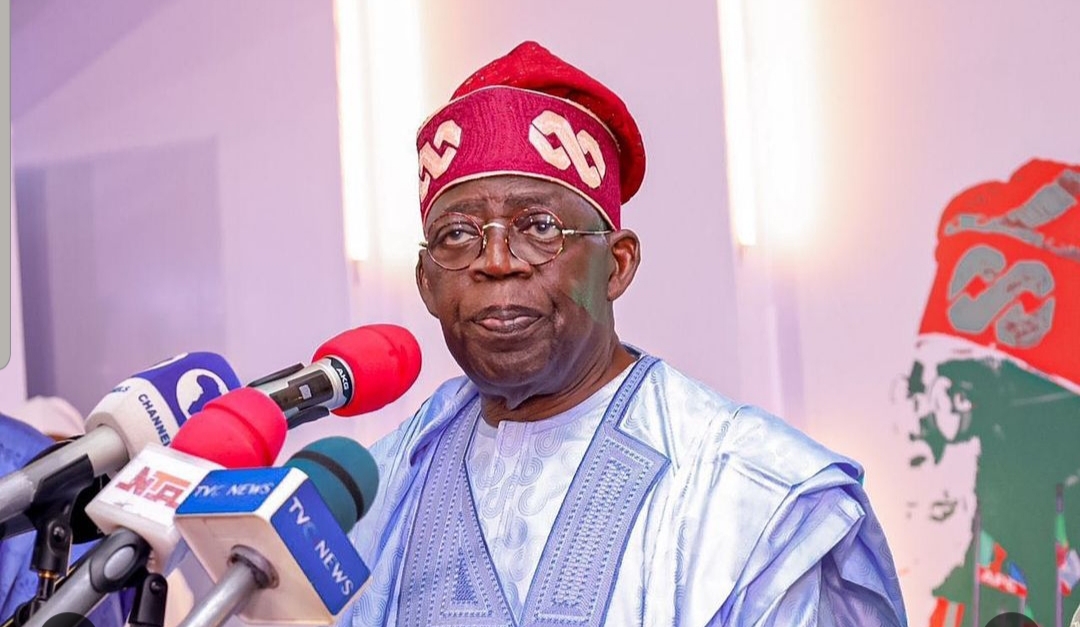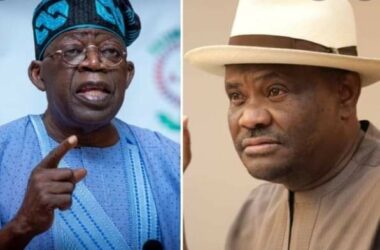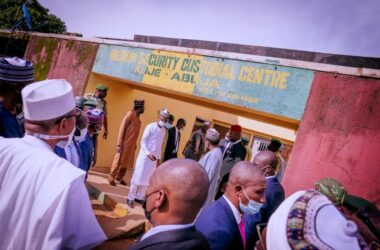These are times that not only try men’s souls, but they test the resilience of entire societies. They also test the efficacy of government policies and their outcomes in the short, medium and long terms.
Nigeria is currently at a tipping-point; it is a nation precariously poised between the very real prospect of breaking free of its contradictions and contentions, and taking its rightful place in the comity of great nations – AND the equally real prospect of crumbling under the weight of its many challenges and joining the miserable league of failed, unstable and violent nations.
To his credit, President Bola Ahmed Tinubu, upon his assumption of office in May 2023, had harboured no illusions whatsoever as to the scale and enormity of Nigeria’s challenges – and the daunting task ahead of his administration as it continues to navigate the best way forward for the country’s development. Since May, he has operated with the understanding that the critical issues to be addressed demanded more than half-measures – and the effort to tackle them must be total and single-minded if solutions are to have their desired impact.
One of the most critical issues bedeviling our economy today is wage disparity among public-sector workers. The abysmally low take-home wages received by these workers at the end of each month can hardly take them home (as the popular expression goes). On the contrary, these low wages have kept millions of working-class families perpetually on the lower rungs of the socio-economic ladder, and contributed to gross inequalities in a society where the rich keep getting richer, and the poor, poorer.
For years now, successive administrations at the federal level as well as various stakeholders (most notably labour unions such as the Nigeria Labour Congress, NLC, and the Trade Union Congress, TUC, etc.) have been locked in negotiations over the most appropriate, market-sensitive minimum wage regime for the country’s public-sector workers. Recall that the latest outcome of these negotiations was the review, in April of 2019, of the national minimum wage from N18,000 to N30,000.
But in June 2023, in the immediate aftermath of the termination of subsidy payments by the current President and the steep climb in the prices of essential commodities in the market, labour leaders urged the government to increase the wage from N30,000 to N200,000 to meet current economic realities. On its part, the federal government has also been exploring ways to alleviate the economic discomfort that the subsidy removal (along with the naira floatation policy which has occasioned a steep decline in the value of the naira against world currencies and driven inflation sky-high) has brought on countless Nigerian families.
The need to sort out this thorny issue once and for all was what prompted the Tinubu administration to inaugurate a 37-man Tripartite Committee on the New National Minimum Wage on Tuesday, January 30, 2024. The inauguration ceremony, which was held at the Presidential Villa in Abuja, the Nigerian federal capital, was graced by the members of the Committee – which included the Executive Governors of six states in the federation (one each from the six geopolitical regions of the country); representatives of organized labour; representatives of the organized private sector; and representatives if the federal civil service, among others. Vice-President Kashim Shettima stood in for President Tinubu at the ceremony. The state Governors on the Committee include Mohammed Bago (Niger, for the North-West); Sen. Bala Mohammed (Bauchi, for the North-East); Umar Dikko Radda (Katsina, for the North-West); Prof. Chukwuma Soludo (Anambra, for the South-East); Sen. Ademola Adeleke (Osun, for the South-West) and Sen. Bassey Otu (Cross River, for the South-South).
The task of the Tripartite Committee – which is headed by a former Head of the Civil Service of the Federation, Alhaji Bukar Goni Aji – is to recommend a new and realistic national minimum wage regime for the country.
Meanwhile, as the Committee continues its work, the President also gave his approval for the immediate release of 42,000 metric tonnes of rice and maize from the National Food Reserves to boost food availability in the country and limit the negative impact of food insecurity.
Insecurity of a more visceral kind – involving direct threats to life and property – has been a clear and present danger to Nigerians for some years now. On an almost daily basis, Nigerians are directly terrorized by, or inundated with news of, one outrage or another at the hands of bandits, gunmen and kidnappers, as well as terrorists, insurgents and other non-state actors bent on undermining the will and writ of the Nigerian state, exploiting the relative weakness of the institutions of law and order, and creating a Hobbesian jungle where life is nasty, brutish and short.
The pervasiveness of this menace was once again brought home to Nigerians a few days ago with a deadly incident that took place in Ekiti State – where two traditional rulers were murdered in cold blood by gunmen at a community in Ikole-Ekiti LGA of the state. The two royal fathers, the Onimojo of Imojo-Ekiti, Chief Olatunde Olusola, and the Elesun of Esun-Ekiti, Chief David Ogunsola, were reportedly returning (ironically enough) from a security meeting in Irele-Ekiti in a vehicle being driven by one of their counterparts, in the person of the Alara of Ikole-Ekiti, Chief Adebayo Fatoba, when said gunmen struck. While the two monarchs lost their lives, Chief Fatoba managed to flee the scene.
Ekiti State was also the scene of a criminal atrocity that took place on the same day as the murder of the royal fathers, which saw the kidnapping of at least 6 students and 3 teachers of the Apostolic Faith School, along with the driver of a bus who happened to be in the wrong place at the wrong time. The crime reportedly occurred around the Eporo-Ekiti area of the state, from where the victims were returning to their school.
In his reaction to the two incidents, President Tinubu not only pledged that the killers of the two monarchs would not escape justice, he also put pressure on the security forces to ensure the immediate rescue of the kidnapped persons, and assured Nigerians that the nation’s security architecture was being robustly fortified for better outcomes. The principle of security of life and property being the primary responsibility of government, Tinubu affirmed, remains a sacred one for his administration, to which he would pay more than lip service.
But as we all know, the task of confronting the menace of insecurity does not belong to government only. It is a collective responsibility to which every citizen must be alive. Same with our expected responses to all our national challenges and social ills. Confronting them as a people will demand a whole new reorientation among Nigerians, irrespective of their background, region, religion or political affiliation. It will demand a new appreciation of our common identity as Nigerians, the values that unite us in spite of our diversity, the things we hold dear, our confidence in the promise of this richly-endowed land we call our home, and our faith in an Almighty, wise and faithful God.
It begins with our daily show of reverence for our national symbols and what they signify. It is against the foregoing that President Bola Ahmed Tinubu recently directed the mandatory recitation of the Nigerian national pledge at all public events across the nation. This simple affirmation of fidelity to the nation and commitment to its cause, is usually recited (at least in primary and post-primary institutions of learning) right after the rendition of the National Anthem, and it goes thus:
‘I pledge to Nigeria my country, To be faithful, loyal and honest, To serve Nigeria with all my strength, To defend her unity and uphold her honour and glory. So help me, God.
In issuing the directive, the President emphasized the importance of promoting the nation’s ideals while abiding by established norms. The directive, he stressed, was aimed at ensuring absolute respect for national symbols, strengthening allegiance to the country, its institutions and its people, and preserving Nigeria’s ethos and defining character.
Tinubu, who was speaking at the groundbreaking ceremony of the 3,112 housing-unit Renewed Hope City at Karsana in the Abuja FCT last week, referenced the exploits of the national football team, the Super Eagles at the just-concluded 34th edition of the Total Energies Africa Cup of Nations (AFCON) to demonstrate the imperative – and the rewards – of commitment to the values, greatness, and hope of one’s country. “It is our pledge to Nigeria, our country, to be faithful, loyal, and honest,” he said. “(It is) to serve Nigeria with all our strength – we saw it on the field of play … We were all rejoicing. Everyone one of us loves victory. We love to win. When you are positive and … hopeful, Nigeria itself is (already) winning.”
Regarding the difficulties the country is passing through – to which he has been a front-row witness, albeit from the elevated perch of the nation’s chief executive – these past eight months or so, the nation’s No. 1 citizen emphasized the need to stay the course, for that is the ONLY way the country can weather the storm of economic adversity and lay the building-blocks of lasting prosperity and sustainable development. “We did not say it will be Eldorado and smooth-sailing all the way,” Tinubu said. “But we are confident that this country will excel in all ramifications. We will defend our unity and uphold Nigeria’s glory in every way possible because we are Nigerians, and we have no other country.”
In the end, though, as laudable as the actions, interventions and positions of the Tinubu administration have been so far, a critical mass of influential and knowledgeable stakeholders with a profound understanding of the trajectories of nations and societies across the globe – especially those which have, at least, been able to confront their existential challenges to the barest minimum (if not totally eliminated them) are of the view that these steps by the administration must be undergirded by the principles of good governance – principles driven by sound policies and clear-eyed vision, but also of compassion and a commitment to social justice, especially on behalf of the most vulnerable members of society.
The release of thousands of metric tons of grains, as mentioned earlier, is no doubt a good first step, but it is not only grossly inadequate and unsustainable in the long term, it is incapable of stemming the tide of mass rebellion that is already brewing in some parts of the country. No; it will, at best, only delay the inevitable. To paraphrase the legendary Nigerian novelist, it falls under the category of charity – and charity is NO substitute for social justice.
The truth is that Nigerians are far from happy with their present lot in life, and President Tinubu and his team must BE SEEN to be feeling the pulse of the suffering masses, and to be responding to their concerns with a statesmanlike combination of firmness of purpose AND empathy.
As we have seen from the pockets of protests taking place at various locations across the land, the long history of socio-economic exclusion in Nigeria (and its twin, insecurity) which have simmered like a slowly boiling pot over the years, is gradually coming to a head.
This history of exclusion must be reversed in an effective and timely manner – before it becomes an EXPLOSION.






